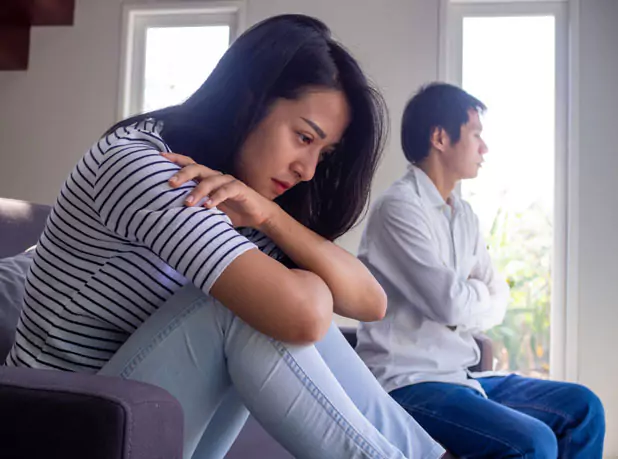The Deeper Journey to Connection - Can Second (Or Third) Marriages Truly Thrive?

The Deeper Journey to Connection - Can Second (Or Third) Marriages Truly Thrive?
Have you ever wondered why some remarriages flourish while others struggle with the same patterns that ended previous relationships?
When you've experienced the pain of divorce, entering a new marriage often comes with both hope and hesitation. You're not alone in this journey - and with the right understanding and tools, your new relationship can become stronger and more fulfilling than you ever imagined.
When Past Wounds Meet New Beginnings
When Melissa and James came to my office, they were eight months into their second marriage and already feeling the strain. "I thought we'd learned from our mistakes," Melissa confessed, tears welling in her eyes. "But sometimes it feels like we're replaying the same movie with different actors."
What Melissa was experiencing reflects what many couples discover: we don't just bring our conscious desires and intentions into new relationships - we bring our unhealed wounds, protective patterns, and deeper attachment needs as well.
"When we fall in love again after divorce, we're often drawn to someone who feels different from our ex," explains relationship researcher Dr. Sue Johnson. "Yet underneath that surface difference, we may be unconsciously seeking to resolve unfinished emotional business."
The Hidden Dance in Remarriage

Consider Maria and Carlos, who met three years after Maria's difficult divorce from her emotionally distant first husband. Carlos was warm, expressive, and seemed to be everything her ex wasn't. Yet six months into their marriage, they found themselves locked in a painful cycle:
When Carlos became busy with work, Maria would feel a familiar panic and pursue him with urgent texts and calls. Carlos, feeling pressured, would pull back to "get some space," which only amplified Maria's fears of abandonment. Soon they were caught in a pursue-withdraw pattern that left them both feeling misunderstood and alone.
What they didn't initially recognize was how their individual histories were creating a shared dance. Maria's childhood with an unpredictable father had left her hypervigilant to signs of rejection. Carlos, raised by a mother who constantly criticized his father, had learned to protect himself by withdrawing when he felt inadequate.
"In our most challenging moments," Maria later shared, "we were each responding more to our past than to each other."
The Courage to Look Deeper
When we enter a second or third marriage, we have a precious opportunity: to recognize these patterns and create something new together. This requires the courage to look at our reactive moments not as evidence that "we chose wrong again," but as windows into our deeper needs and fears.
For Dana and David, this insight became transformative. After David's brief affair in their second year of marriage, they faced a turning point. Rather than solely focusing on the infidelity, their healing process involved understanding the vulnerable feelings beneath their cycle:
"I realize now that when Dana would get busy with her own children, I felt invisible," David explained. "Instead of expressing that vulnerability, I'd become cold and distant, which made Dana try harder to 'fix' things, which made me pull away more... until eventually I sought connection elsewhere."
Dana nodded tearfully. "And when David withdrew, I felt that familiar panic from my first marriage - that I wasn't enough. So I'd pursue harder, which only pushed him further away."
Building Your Relationship House Anew
How can you and your partner create a stronger foundation in your remarriage? Here are specific steps that have helped countless couples:
1. Map your cycle together. What this means is: notice the pattern that emerges when you feel disconnected. What do you do? What does your partner do in response? Without blame, get curious about this dance.
2. Explore the softer feelings beneath. When you feel angry or defensive, pause and ask yourself: "What's happening inside me right now? Do I feel small, invisible, inadequate, or afraid?" Share these vulnerable feelings with your partner if you can. It can be tough speaking about those vulnerable feelings and we are not sure if our partner can listen and not react in shame or anger.
3. Listen for the attachment need. Beneath complaints like "You never help with the kids" or "You're always on your phone" are deeper needs: "I need to know I matter to you" or "I need to feel safe with you."
4. Create daily rituals of connection. William and Sarah, remarried for seven years, credit their morning "coffee check-in" with maintaining their bond amidst blending families. "Just fifteen minutes of undivided attention reminds us we're partners first," William shares.
5. Respond to emotional bids. Research by Dr. John Gottman shows that responding positively to your partner's attempts to connect—whether it's a comment about the weather or sharing a worry—builds emotional trust over time.
6. Practice repair after disconnection. All couples argue, but successful ones know how to repair. This might sound like: "I got defensive earlier. Can we try again? I want to understand what you were feeling."
7. Hold space for different grief timelines. Each partner may process grief from previous relationships differently. Honor these differences without judgment.
The Gift of Second Chances

Your second or third marriage isn't doomed to repeat past patterns. With awareness and intention, it can become the relationship where you both finally feel truly seen, accepted, and securely connected.
As Maria reflected three years into her marriage with Carlos: "Our hardest moments became our greatest teachers. When we could understand and hold each other's deeper fears, we created something neither of us had experienced before—a relationship where we both feel safe enough to be fully ourselves."
What patterns from your past might be influencing your current relationship? And what new possibilities might open up when you both dare to look beneath the surface together?
You might want to check the workshops which are running in Dubai. Crafted to suit individuals seeking answers to their own development or couples looking to deepen their bonds, the Heal and Transform and Heal and Grow Together Workshops offer a cost effective way to build better relationship with oneself and others.
For more information and registration click here
You need support in your life but you don't know if mental coaching, couple therapy or workshops would be better, book a free call and we can discuss your situation.
Never Miss a New Journal Entry
Join the newsletter to stay up to date on the latest from the blog and get answers on mental health and relationships.


.jpg)




